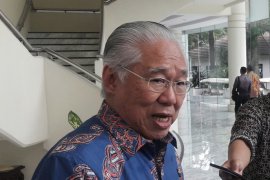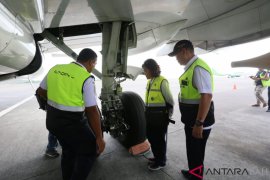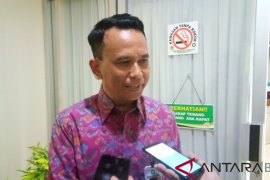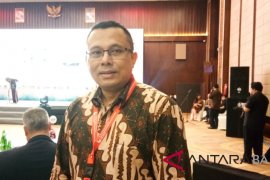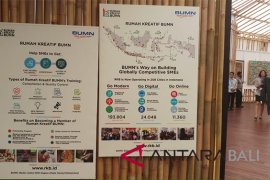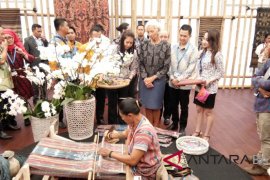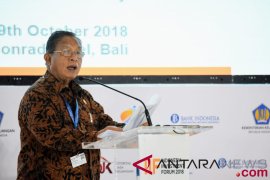Denpasar, Bali (Antara Bali) - Indonesia, which is prioritizing agricultural development to achieve food self-sufficiency by 2017, should not nurse doubts about extending protection and subsidy to its agricultural sector, a chief researcher said.
"Advanced countries have since the beginning done this (award subsidies) to protect their farmers. Indonesia should also do that," Prof. Dr Wayan Windia, the head of the Subak Research Center of the Denpasar-based University of Udayana, said on Saturday.
He said the International Monetary Fund (IMF) has offered and even urged Indonesia to award subsidies to protect its people, mainly by imposing import taxes and enforcing export subsidy policies.
The import tax policy is intended to boost the prices of imported goods, thus making them expensive at home.
Such a policy is expected to boost domestic production, while the export subsidy is aimed at expediting the growth of exports.
Given this situation, less developed countries, which are usually weak, will be forced to import goods whose prices in the global market are relatively lower. The prices are lower as a result of the export subsidy.
Windia said the prices of imported and cheap goods in Indonesia were usually lower than domestic products in the same categories.
This was also prevalent in the agricultural sector and had resulted in disadvantages for local farmers.
Even in Bali, which is an international tourist resort province, the need for food products that are dominated by foreign goods was high, Prof. Windia remarked.
An official from the Agriculture Ministry said in Riau province recently that around 500,000 Indonesian farming families changed their livelihood every year for a number of reasons.
Among the reasons was high production costs, the Head of Agricultural Extension and Human Resource Development at the Agriculture Ministry, Momon Resmono, pointed out.
"That is one of the problems identified by the ministry,¿ he said, adding that during his three months in office he had visited 22 of the country's provinces. We identified five problems that are potentially hampering the program and keeping us from achieving self-sufficiency in food," Resmono said.
One of the five problems was damaged infrastructure, with 52 percent of the irrigation systems being out of order, he said while addressing a meeting of the Association of Agriculture Extension (Perhiptani).
Many of the both primary and secondary irrigation systems had long been left untended, he said, adding, that therefore, the repair of irrigation systems had to be prioritized during budgeting.
"The ministry has set targets for making irrigation systems function and service 3 million hectares of farm land. Meanwhile, the Public Works Ministry will also support the repairs of 49 water reservoirs, including primary and secondary irrigation systems, with a budget of Rp4 trillion in 2015," he said.
The second problem was a shortage of seeds in 2014, with only 20 percent of the seed budget allocated by the government being used, he said.
"Just imagine, 80 percent of the budget provided by the government for seeds failed to reach the farmers," he said.
The third problem was fertilizer supply. In a number of areas in Central Java, farmers, who were entitled to subsidized fertilizers, were forced to buy non-subsidized fertilizers, he said. The ministry had reported the case to the military and police and the perpetrators had been arrested.
The fourth problem was related to labor. Based on data from the Central Bureau of Statistics, the number of farm workers had narrowed from 31 million in 2003 to 26.5 million in 2013¿or around 500 farm families had changed their livelihood every year.
As a result there was always a shortage of labor during the harvest and planting time and an optimization of existing laborers was needed by equipping them with more farming equipment and tools, he said.
The minister also found fault with Perhiptani's role, adding that the program for agricultural extension had not been as efficiently executed as expected.
"We hope that Perhiptani would enhance its role in the program of agricultural extension to support it in general," he said. (WDY)




